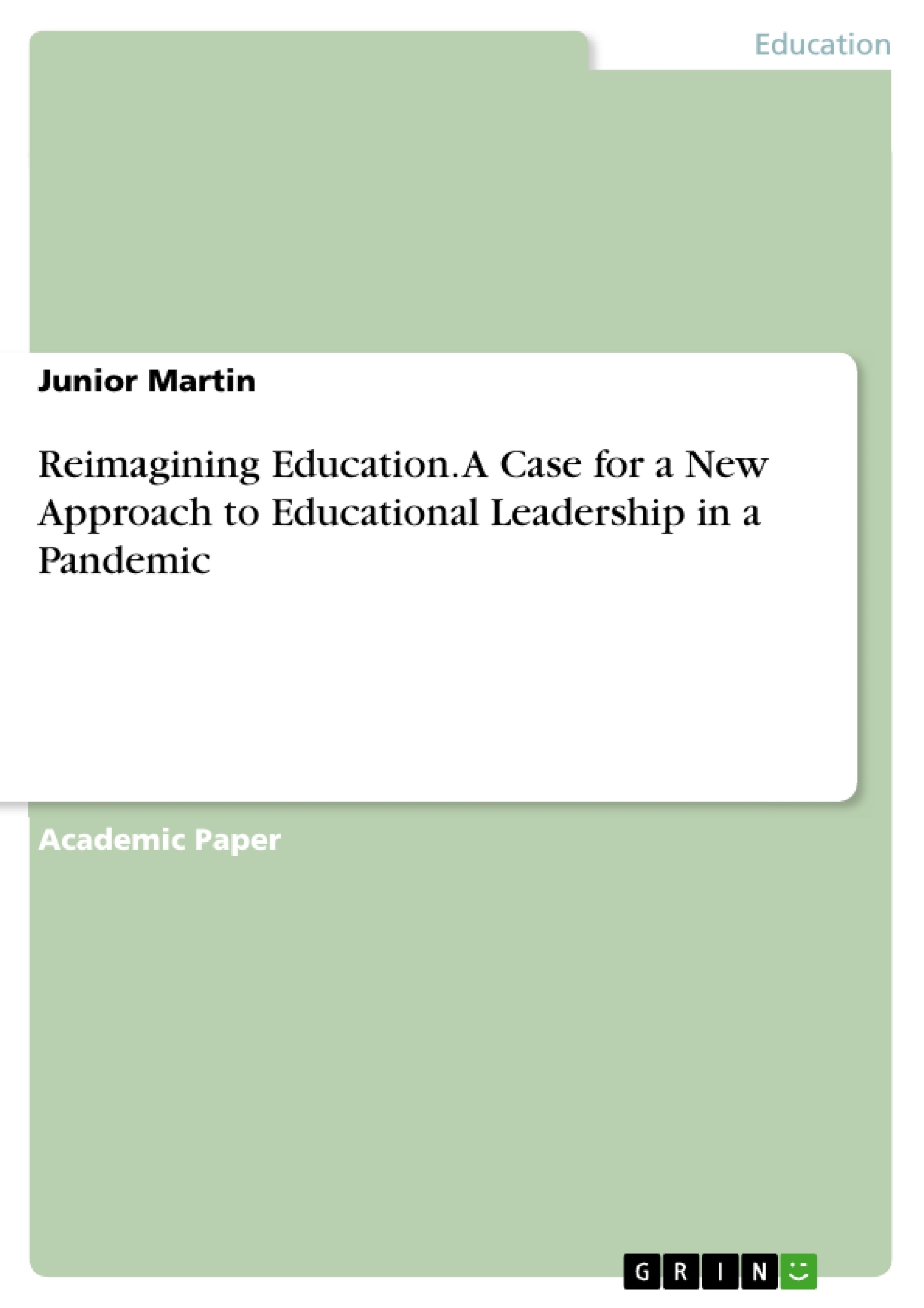In the Caribbean, school closures have left 7 million learners and over 90, 000 teachers across 23 countries and territories struggling to identify sustainable responses to the catastrophe caused by the covid-19 pandemic. Academic leaders across the world have responded to the crisis by closing institutions, canceling face-to-face activities and moving their educational and related activities online. Academic leaders are therefore expected to play a crucial role in the management of an appropriate response to the crisis at their institutions.
While institutions are forced to function in an environment of uncertainty and growing intensity of the novel coronavirus pandemic, academic leaders can be credited with making the decision of shifting towards remote learning (Fernandez & Shaw 2020). This massive shift towards pivoting to remote learning is a demonstration that academic leaders are resolute in embracing the transformation of academia to a more modern system. In the context of this change, it is anticipated that the recovery period and beyond will clearly require an evolution of leaders who are more prepared to manage crises while advancing the technology agenda. The process of reimagining education, therefore, is a call for academic leaders to successfully embrace change management, master crisis management, and demonstrate resilience in an effort to successfully lead the recovery process.
Inhaltsverzeichnis (Table of Contents)
- Introduction
- Reimaging Educational Leadership Through Change Leadership
- Reimagining Educational Leadership Through a "New Toolbox"
- Reimagining Educational Leadership Through Resilient Leadership
Zielsetzung und Themenschwerpunkte (Objectives and Key Themes)
This work aims to explore the reimagining of education and educational leadership in the wake of the COVID-19 pandemic. It argues for a new approach to leadership that is adaptable, resilient, and focused on supporting student success in a rapidly changing world.
- The impact of the COVID-19 pandemic on education
- The importance of change leadership in navigating the crisis
- The role of a "new toolbox" of leadership skills and approaches
- The necessity of resilient leadership in sustaining educational operations
- The need to address the specific challenges faced by marginalized students
Zusammenfassung der Kapitel (Chapter Summaries)
- Introduction: This chapter explores the impact of the COVID-19 pandemic on education globally, highlighting the challenges faced by institutions and learners. It argues that the pandemic has necessitated a reimagining of education and a new approach to leadership.
- Reimaging Educational Leadership Through Change Leadership: This chapter discusses the concept of change leadership, arguing that it is essential for navigating the turbulent landscape of education during the pandemic. It explores how change leadership can be used to promote student success and address the challenges posed by remote and online learning.
- Reimagining Educational Leadership Through a "New Toolbox": This chapter examines the need for a new set of tools and approaches for effective leadership during the pandemic. It argues that academic leaders must be adaptable, innovative, and collaborative in order to effectively lead their institutions through these challenging times.
- Reimagining Educational Leadership Through Resilient Leadership: This chapter discusses the concept of resilient leadership, which is characterized by the ability to absorb strain, preserve functioning, and build strong community relationships. It argues that resilient leadership is crucial for navigating the long-term impact of the pandemic on education.
Schlüsselwörter (Keywords)
Key terms and concepts explored in this work include change leadership, adaptive leadership, resilient leadership, remote learning, online learning, COVID-19 pandemic, equity gaps, marginalized students, and the reimagining of education.
Frequently Asked Questions
How has the COVID-19 pandemic affected education in the Caribbean?
The pandemic led to the closure of schools across 23 countries, affecting approximately 7 million learners and 90,000 teachers who had to transition to remote learning.
What is "Change Leadership" in the context of educational recovery?
Change leadership involves academic leaders resolutely embracing the transformation of institutions into modern systems and promoting student success during turbulent times.
What is meant by the "New Toolbox" for academic leaders?
It refers to a new set of skills and innovative, collaborative approaches required to manage crises and advance the technology agenda effectively.
What are the characteristics of "Resilient Leadership"?
Resilient leadership is defined by the ability to absorb strain, maintain functioning during a crisis, and build strong community relationships to sustain operations.
How should educational leaders address equity gaps during a pandemic?
Leaders are called to reimagining education in a way that specifically identifies and supports sustainable responses for marginalized students affected by closures.
- Citation du texte
- Dr. Junior Martin (Auteur), 2022, Reimagining Education. A Case for a New Approach to Educational Leadership in a Pandemic, Munich, GRIN Verlag, https://www.grin.com/document/1184042



